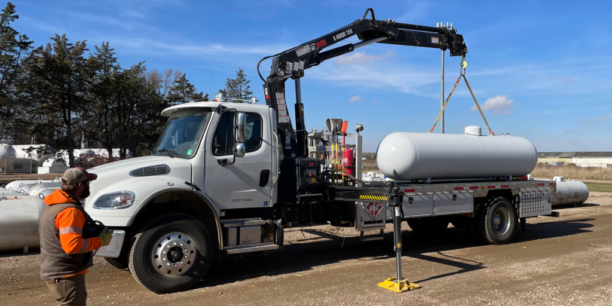Creating Resilient Supply Chains for Propane Distribution

Creating resilient supply chains is essential for propane distribution companies to ensure uninterrupted service and meet customer demands effectively. Here are some essential strategies and considerations for building resilient supply chains in the propane distribution sector.
Understanding Supply Chain Resilience
Supply chain resilience involves the capacity of a distribution system to foresee, adjust to, and swiftly recover from interruptions. Propane distributors rely on this resilience to ensure consistent delivery timetables, especially when confronted with issues like severe weather, disruptions in the supply chain, or regulatory adjustments.
Key Considerations for Resilient Supply Chains
Diversified Sourcing
Diversifying propane supply sources reduces dependency on a single supplier or region. Distributors should establish relationships with multiple suppliers and monitor market conditions to secure propane at competitive prices while mitigating supply risks.
Robust Inventory Management
Effective inventory management is critical to ensure sufficient propane reserves during peak demand periods or supply disruptions. Leveraging technology for real-time monitoring of inventory levels and consumption patterns helps distributors optimize stock levels and anticipate future needs.
Strategic Location of Storage Facilities
Strategically locating storage facilities enhances operational efficiency and responsiveness to customer demands. Distributors should consider proximity to key markets, transportation routes, and disaster-prone areas to facilitate quick replenishment and distribution.
Agile Logistics and Distribution Networks
Maintaining agile logistics and distribution networks enables quick response to changing market conditions and customer requirements. Propane distributors should invest in modern fleet management technologies, route optimization tools, and contingency plans to streamline operations and minimize delivery delays.
Regulatory Compliance and Safety Protocols
Adhering to regulatory standards and implementing stringent safety protocols is non-negotiable for propane distribution. Compliance with safety regulations ensures employee safety, minimizes environmental impact, and avoids legal liabilities that could disrupt operations.
Technology Integration for Efficiency
Embracing technology plays a pivotal role in enhancing supply chain resilience. Key components of this integration should include:
IoT (Internet of Things) Sensors
IoT sensors monitor propane levels in storage tanks and track shipment conditions in real-time, enabling proactive maintenance and timely replenishment.
Data Analytics
Analyzing historical consumption data and market trends empowers distributors to forecast demand accurately and optimize supply chain operations.
Blockchain Technology
Blockchain enhances transparency and traceability in supply chain transactions, ensuring compliance with regulatory requirements and building trust with stakeholders.
Collaborative Partnerships and Risk Management
Collaborating with industry partners, suppliers, and customers fosters a network of support and mutual assistance during supply disruptions. Establishing robust risk management strategies, including scenario planning and supply chain audits, prepares distributors to navigate uncertainties proactively.
Going Forward
Creating resilient supply chains is not merely a proactive measure but a strategic imperative for propane distribution companies. As the propane distribution sector continues to evolve, prioritizing supply chain resilience ensures sustained growth, customer satisfaction, and readiness to tackle future challenges. By investing in resilience today, distributors secure their position as reliable energy providers in a competitive market.
















